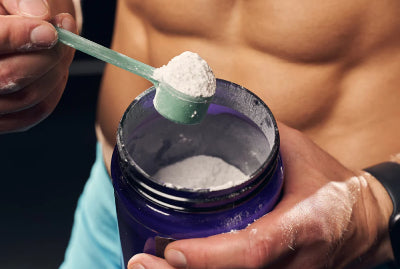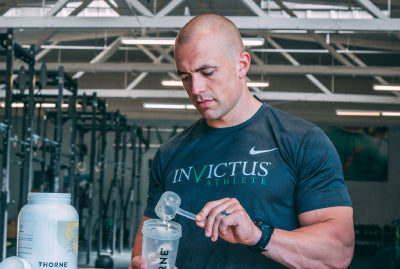
Creatine Benefits: A Complete Guide
Introduction
Creatine is a popular supplement used by athletes, bodybuilders, and even fitness enthusiasts. Known for its many benefits, it helps improve athletic performance and promote muscle growth. In this article, we will explore in detail the benefits of creatine, how it works, and how to effectively incorporate it into your routine.
What is Creatine?
Creatine is a compound that occurs naturally in the body, primarily in muscles and the brain. It is produced from the amino acids arginine, glycine, and methionine. As a dietary supplement, creatine is often consumed in the form of creatine monohydrate, the most researched and studied form.
How Does Creatine Work?
Creatine helps produce adenosine triphosphate (ATP), a molecule essential for quick energy. During intense exercise, ATP is rapidly broken down to provide energy. Creatine increases phosphocreatine stores in muscles, which allows for rapid ATP production and improves athletic performance.
Creatine Benefits for Sports Performance
1. Increased Strength and Power
Creatine is known to increase muscle strength and power. By increasing phosphocreatine stores, it allows for additional repetitions and increased intensity during resistance training, leading to significant strength gains.
2. Improved Stamina
For high-intensity, short-duration exercises, such as sprinting or weightlifting, creatine helps maintain a high level of performance. It allows athletes to train harder and longer, improving muscular endurance.
3. Accelerated Recovery
Creatine can also aid in post-workout recovery by reducing muscle damage and inflammation. This helps you get back to training faster and minimizes muscle soreness.
Creatine Benefits for Muscle Growth
1. Increased Muscle Mass
Creatine promotes muscle growth by increasing the ability of muscles to perform more intense and prolonged work. It also helps attract water into muscle cells, which can lead to increased muscle volume.
2. Improved Protein Synthesis
By increasing ATP levels, creatine promotes protein synthesis, a process essential for muscle repair and growth. This leads to increased lean muscle mass and improved body composition.
Creatine Benefits for Cognitive Health
1. Improvement of Cognitive Functions
Studies have shown that creatine can improve cognitive functions, including memory and concentration. By increasing phosphocreatine levels in the brain, it can help provide quick energy to brain cells, improving mental performance.
2. Protection Against Neurodegenerative Diseases
Creatine has shown protective effects against some neurodegenerative diseases, such as Parkinson's disease and Alzheimer's disease. Although research is still in the early stages, creatine may offer potential benefits for long-term brain health.
How to Take Creatine
Recommended Dosage
The standard dosage of creatine is 3 to 5 grams per day. Some people choose to start with a loading phase of 20 grams per day for 5 to 7 days, followed by a maintenance phase of 3 to 5 grams per day. This approach allows the muscles to be saturated with creatine more quickly.
Creatine Timing
Creatine can be taken at any time of day. However, some studies suggest that taking it after training may be slightly more beneficial for muscle recovery and growth.
Hydration
It is important to stay well hydrated when taking creatine, as it can draw water into the muscles, increasing fluid requirements.
Conclusion
Creatine is a powerful supplement with many benefits for athletic performance, muscle growth, and cognitive health. By incorporating creatine into your routine properly, you can maximize its positive effects and reach your fitness goals faster. Remember to consult a healthcare professional before starting any new supplement to ensure it is safe and appropriate for your needs.
The benefits of creatine are undeniable, and with proper use, it can be a valuable asset in your fitness arsenal.



Leave a comment
This site is protected by hCaptcha and the hCaptcha Privacy Policy and Terms of Service apply.